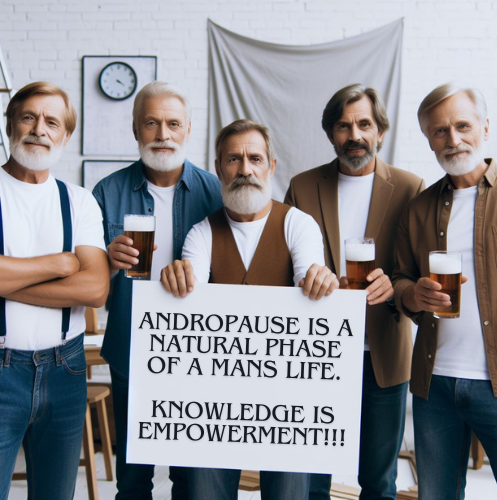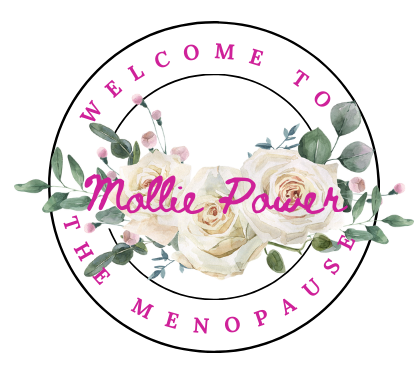
If you are unfamiliar with the term Andropause, you are not alone. Often less highlighted than menopause, Andropause signifies a pivotal shift in men’s health, marking a period where significant hormonal changes occur, primarily a decline in testosterone levels. This transition can result in noticeable physical and emotional upheavals, from diminished energy and changes in mood to altered sexual function and cognitive differences.
The silence surrounding Andropause does no favours to men grappling with its realities. Amidst bouts of fatigue and the struggle with mood swings, men can feel isolated, left to navigate these challenges without a roadmap. Recognising and confronting these changes is more than a matter of health; it is about upholding one’s well-being and quality of life. That is why starting a conversation and seeking support is so critical during this phase.
Support offers more than just comfort; it provides education and coping strategies that are crucial for managing Andropause effectively. When men unite, share experiences, and gain insights from one another, the journey through Andropause can become less daunting and more manageable. The benefits are clear: camaraderie dissolves isolation, knowledge empowers decision-making, and shared wisdom paves the way for more positive outcomes.
The next section delves into the supportive role men’s groups can play in this journey. From discussions to aid in understanding one’s body to forming connections with those who empathise, men’s groups create environments where vulnerabilities are not shunned but embraced. These groups present a safe harbour – a prime setting for mutual support and guidance.
Navigating Through Andropause with Men’s Groups
The decision to reach out to men’s groups can be a game-changer for those grappling with the realities of Andropause. These organisations exist because traditional societal norms often discourage men from openly discussing health concerns, particularly those related to aging and hormonal changes. Yet, the companionship and understanding offered in these spaces can be transformative.
Men’s health organisations are becoming increasingly attuned to the specific challenges of Andropause. By providing a platform for conversation and support, they break through the stigma, allowing men to share their stories and experiences without judgment. This kind of peer support can be incredibly powerful, as it validates individual experiences and provides reassurance that one is not alone in this journey.
The programs and initiatives offered by these groups are varied, catering to a range of needs and preferences. Regular meetings, both in-person and virtual, workshops, informational sessions, and even social events are just some of the ways these groups foster connection and support among their members.
Yet, it is not just about camaraderie. These organisations often direct members to a wealth of resources, from the latest research on Andropause to lists of healthcare professionals who specialise in men’s health. By equipping men with this knowledge, they are empowering them to make informed decisions about their health and well-being.
Connecting Online: Virtual Forums and Support Networks

The digital age offers an expansive platform for men to connect, share experiences, and seek support, particularly during transitions like Andropause. Online forums and support groups are prolific and present a way for men from all walks of life to gather virtually and discuss their Andropause experiences. The anonymity and ease of access foster candid conversations, making it easier to talk about topics that may be difficult to broach in person.
Prominent online communities such as the Men’s Health Forum and Andropause Society are just a few clicks away, providing spaces where men can pose questions, seek advice, or simply read others’ stories, which may mirror their own challenges. It is critical, however, to approach these forums critically, ensuring the information is credible and advice comes from reliable sources.
Engaging in online support networks requires a degree of digital literacy. I recommend familiarising yourself with the website’s rules and privacy policies before participating fully. It is also important to contribute positively, basing discussions on firsthand experiences and support rather than medical advice, which should always be left to health care professionals.
The convenience of online forums can sometimes come at the cost of misinformation. Therefore, when browsing through posts, remain vigilant about checking the facts with established medical resources or confirmed scientific research. This not only helps maintain the integrity of the forum but also ensures that you are receiving trustworthy information.
Empowerment Through Education: Utilising Resources and Learning
Knowledge is a form of empowerment, especially when dealing with Andropause. A wealth of educational materials is at your fingertips, offering insights into the symptoms you might be experiencing, potential treatment options, and ways to manage the challenges associated with this life phase.
Numerous organisations dedicated to men’s health curate articles, research papers, and resource guides specifically with you in mind. They tackle various aspects of Andropause, from understanding hormonal changes to the psychological impact it may have on your well-being.
Developing a comprehensive lifestyle and wellness strategy is key. Tailored advice on diet, exercise, and stress management can help mitigate some of the physical and emotional symptoms of Andropause.
Learning to discern reliable health information is crucial. LOOK FOR trusted sources that cite evidence-based research and offer advice from qualified professionals. This will ensure that the steps you take toward managing Andropause are safe and effective.
This educational journey is not just about reading and absorbing information; it is about applying it. Take what you learn and discuss it with healthcare professionals to personalise your approach to Andropause management. With a solid knowledge base, you can make informed decisions about your health trajectory.
Conclusion: Embracing the Journey with Adequate Support
I understand that dealing with Andropause is far from simple. It is a period rife with change and uncertainty, one that can truly test a man’s resilience. But in this final note, I want to offer more than just words of encouragement; I aim to provide a clear call to action.
Firstly, acknowledge the changes. Recognise that experiencing Andropause is a natural phase of life. It is not a weakness nor something to be ashamed of. Solidarity in navigating this phase can show strength rather than vulnerability.
Remember, you are not alone. Countless others are on this very journey, facing similar challenges and adjustments. There is a community, both online and in-person, ready to welcome you, to share this path and offer the companionship and understanding you might be seeking.
Use the tools at your disposal. Whether it is connecting with men’s groups, tapping into the wealth of online resources, joining educational programs, or seeking professional healthcare advice, you have options. Take advantage of these opportunities to empower yourself and manage your health proactively.
Finally, open up to the idea of community. In-person workshops, local support groups, and health seminars can serve as wonderful avenues to foster connections, share experiences, and find practical, everyday solutions to the challenges of Andropause.
By seeking support, educating yourself, and connecting with others, you are taking significant steps towards not just enduring Andropause, but thriving through it. Embrace this transformative phase with courage and optimism, because with the right resources and a supportive community, this journey can lead to a chapter of growth and renewed vitality.
